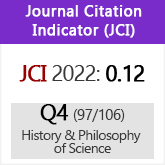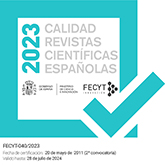Los motivos de una fugaz resurrección: el método histórico natural en la obra de K. W. Stark (1787-1845) y F. Jahn (1804-1859)
DOI:
https://doi.org/10.3989/asclepio.1996.v48.i2.398Abstract
This Work analyses the methodological proposals of two German doctors in the first half of the XIX century, traditionally linked to the so-called "Naturalistic School". It aims especially to evaluate the importance given by each to the "Naturalistic method" applied to the classification of these diseases, taking into account the fact that both defended an ontologistic or "parasitic" conception of the same. This study illustrates how this undertaking responds to the challenge, expounded by the followers of Schelling's Naturphilosophie, of converting medicine into a natural science. Likewise, this undertaking was doomed to failure due to the existing contradiction between the utilization to the classificatory method, characteristic of eighteenth century Natural History, and the need for a physiological foundation of nosology, more in acoordance with the nascent Biology, which will greatly reduce the epistemological soundness of the concept of morbid species. This very imbalance will be revealed, in the strictly medical aspect, in the doubts when giving epistemological priority to physiology or to the clinical observation.
Downloads
Download data is not yet available.
Downloads
Published
1996-12-30
How to Cite
Montiel, L. (1996). Los motivos de una fugaz resurrección: el método histórico natural en la obra de K. W. Stark (1787-1845) y F. Jahn (1804-1859). Asclepio, 48(2), 73–85. https://doi.org/10.3989/asclepio.1996.v48.i2.398
Issue
Section
Dossier
License
Copyright (c) 1996 Consejo Superior de Investigaciones Científicas (CSIC)

This work is licensed under a Creative Commons Attribution 4.0 International License.
© CSIC. Manuscripts published in both the printed and online versions of this Journal are the property of Consejo Superior de Investigaciones Científicas, and quoting this source is a requirement for any partial or full reproduction.All contents of this electronic edition, except where otherwise noted, are distributed under a “Creative Commons Attribution 4.0 International” (CC BY 4.0) License. You may read here the basic information and the legal text of the license. The indication of the CC BY 4.0 License must be expressly stated in this way when necessary.
Self-archiving in repositories, personal webpages or similar, of any version other than the published by the Editor, is not allowed.














